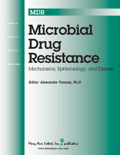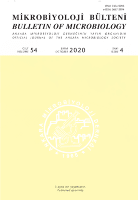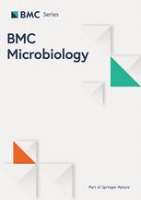
Microbial Drug Resistance
Scope & Guideline
Transforming Knowledge into Action Against Drug Resistance
Introduction
Aims and Scopes
- Mechanisms of Drug Resistance:
Research articles explore the genetic, biochemical, and physiological mechanisms by which bacteria and fungi develop resistance to antimicrobial agents, including beta-lactams, macrolides, and newer antibiotics. - Clinical Implications of Resistance:
The journal emphasizes studies that investigate the clinical consequences of antimicrobial resistance, including treatment failures, infection outcomes, and the implications for public health. - Surveillance and Epidemiology:
Publications include epidemiological studies that track the prevalence and distribution of resistance genes in various environments, including hospitals, communities, and animal populations. - Novel Therapeutic Approaches:
Research on new antimicrobial agents, combination therapies, and alternative treatment strategies is a key focus, showcasing efforts to combat resistance in clinical settings. - Environmental and One Health Perspectives:
The journal also covers studies that assess the environmental impact of resistant pathogens and the interconnectedness of human, animal, and environmental health in the context of antimicrobial resistance.
Trending and Emerging
- Characterization of Resistance Genes and Mobile Elements:
There is a growing emphasis on the characterization of resistance genes, particularly those located on mobile genetic elements such as plasmids, which facilitate the spread of resistance across different bacterial species. - Impact of COVID-19 on Resistance Trends:
Research examining how the COVID-19 pandemic has influenced antimicrobial resistance patterns, treatment practices, and infection control measures has gained significant attention. - Use of Advanced Genomic Techniques:
The application of whole-genome sequencing and other genomic techniques to analyze resistance mechanisms and track outbreaks is becoming increasingly prevalent in published studies. - Environmental Resistance Dynamics:
Emerging research focuses on the dynamics of antimicrobial resistance in environmental contexts, including wastewater, agricultural settings, and wildlife, highlighting the importance of a One Health approach. - Innovative Therapeutic Strategies:
There is a rising interest in exploring novel therapeutic strategies, including the use of bacteriophages, antimicrobial peptides, and combination therapies, to overcome drug resistance.
Declining or Waning
- Antibiotic Stewardship in Specific Settings:
Although antibiotic stewardship remains important, there has been a noticeable decline in studies focusing solely on stewardship practices within specific healthcare settings, as more comprehensive and integrated approaches are being adopted. - Basic Laboratory Techniques for Resistance Detection:
Research centered around traditional laboratory methods for detecting resistance, such as disk diffusion or standard broth microdilution, appears to be less frequent, as newer molecular and rapid testing methods gain traction. - Single-Pathogen Studies:
The trend has shifted towards multi-pathogen studies and broader environmental assessments, leading to a decrease in publications focusing exclusively on single-pathogen resistance profiles. - Global Surveys of Resistance Patterns:
While still relevant, the frequency of global surveys of resistance patterns has diminished, possibly due to the increasing focus on localized studies that address specific regional challenges.
Similar Journals

MIKROBIYOLOJI BULTENI
Unveiling the Complexities of Microbial LifeMIKROBIYOLOJI BULTENI, with ISSN 0374-9096, is a prestigious academic journal published by the ANKARA MICROBIOLOGY SOC, located in Ankara, Turkey. Established in 1973, this journal has been a vital conduit for disseminating research in the fields of Immunology, Microbiology, and Infectious Diseases, garnering a reputation as a significant contributor to the scientific community. The journal is currently ranked in the Q3 category within Immunology and Microbiology (miscellaneous), and Infectious Diseases, indicating its impactful presence amidst contemporary research. With access options that may be restricted, MIKROBIYOLOJI BULTENI actively welcomes submissions that advance the understanding of critical microbiological principles and practices, thereby supporting both national and international research efforts. Researchers, professionals, and students are encouraged to explore the latest findings shared in this journal, as it continually shapes the landscape of microbiology and infectious disease studies through its comprehensive and rigorous peer-reviewed publications.

Revista Espanola de Quimioterapia
Innovating Solutions in Microbiology and PharmacologyThe Revista Espanola de Quimioterapia, published by the SOCIEDAD ESPANOLA QUIMIOTERAPIA, is a pivotal open-access journal that has been advancing the field of clinical microbiology and pharmacology since its inception in 1989. With an E-ISSN of 1988-9518, this journal caters to a diverse audience of researchers, healthcare professionals, and students, providing them with critical insights into the latest developments in medicinal chemistry and therapeutic strategies. Located in Madrid, Spain, the journal reflects the rigorous academic standards of its associated institutions, contributing significantly to the translation of research into clinical practice. Achieving a Q3 ranking in the fields of Medicine, Microbiology, and Pharmacology in 2023 attests to its growing influence and relevance in the scientific community, making it a vital resource for those engaged in the quest for innovative solutions to pressing healthcare challenges. The journal prides itself on its commitment to maintaining an open-access model since 2018, ensuring that vital research is freely accessible to foster greater knowledge sharing and collaboration within the global scientific community.

Reviews and Research in Medical Microbiology
Exploring the Depths of Microbial MechanismsReviews and Research in Medical Microbiology is a premier academic journal published by LIPPINCOTT WILLIAMS & WILKINS, focusing on groundbreaking research and comprehensive reviews that advance the understanding of medical microbiology. With an ISSN of 2770-3150 and an E-ISSN of 2770-3169, this journal serves as an essential resource for researchers, healthcare professionals, and students dedicated to the study of pathogens, infectious diseases, and microbial mechanisms affecting health. While the journal currently does not offer open access, its rigorous peer-review process ensures that only high-quality, impactful research is disseminated to the scientific community. The journal aims to bridge gaps in knowledge by presenting cutting-edge studies that explore novel therapeutic strategies, diagnostic methods, and the evolving landscape of microbial resistance. Nestled in the heart of Philadelphia, this journal proudly contributes to the advancement of medical microbiology and is an indispensable platform for the publication of critical findings that shape clinical practices and research trajectories in the field.

mSphere
Pioneering research at the intersection of microbiology and molecular biology.mSphere is a leading open-access journal published by the American Society for Microbiology, dedicated to the dynamic fields of Microbiology and Molecular Biology. Since its inception in 2016, mSphere has rapidly established itself as a reputable source of scholarly research, achieving notable impact factors and excellence within the academic community. The journal ranks in the top quartile (Q1) amongst its peers in Microbiology, and Q2 in the field of Molecular Biology, demonstrating its significance and relevance through Scopus rankings—specifically, it holds the #42 spot out of 182 in the Microbiology category and #108 out of 410 in Molecular Biology. With an editorial commitment to advancing the understanding of microbial and molecular sciences, mSphere provides an accessible platform for researchers, professionals, and students alike to disseminate groundbreaking findings. The journal promotes rigorous peer-review and invites innovative contributions aimed at enhancing microbial research mobility and molecular exploration. Accessible openly since 2016, mSphere continues to thrive as an influential publication driving scientific dialogue and discovery in the microbiological sciences.

Expert Review of Anti-Infective Therapy
Advancing the Fight Against Infectious DiseasesExpert Review of Anti-Infective Therapy, published by Taylor & Francis Ltd, is a leading journal in the field of infectious diseases, microbiology, and virology, boasting an impressive impact factor and ranking in the Q1 category across multiple disciplines. With an ISSN of 1478-7210 and E-ISSN 1744-8336, this journal has become a vital resource for researchers, professionals, and students aiming to advance their understanding of anti-infective therapies. Since its inception in 2003, the journal has provided critical insights, evidence-based reviews, and forward-thinking perspectives that contribute significantly to the ongoing efforts in combating infectious diseases. As of 2023, it ranks #36 out of 344 in Medicine/Infectious Diseases and maintains high percentiles in various other categories, reflecting its influence and reach within the scientific community. Although not an Open Access journal, its rich content is delivered through various academic libraries, sustaining its commitment to disseminating knowledge in the face of global health challenges. For those committed to innovation in the field, the Expert Review of Anti-Infective Therapy offers a platform that blends thorough research with practical applications, making significant strides in the fight against infectious pathogens.

Advancements in Life Sciences
Pioneering Research in Veterinary and Molecular BiologyAdvancements in Life Sciences is a prominent open-access journal published by The Running Line since 2014, dedicated to the exploration and dissemination of research in the fields of biochemistry, genetics, molecular biology, and veterinary sciences. Based in Lahore, Pakistan, this journal serves as an important platform for researchers, professionals, and students alike, offering a wide array of articles that contribute to the advancement of knowledge in these critical areas of life sciences. With an increasing visibility reflected in its Scopus rankings—#294 in General Medicine, #106 in General Veterinary, and #159 in General Biochemistry—the journal is positioned to foster innovative research and discussions. The journal operates under an open-access model, ensuring that its valuable content is readily available to the global academic community. As it continues to evolve, Advancements in Life Sciences aspires to build a substantial impact within its respective quartiles, currently recognized as Q4 in Biochemistry, Genetics, and Molecular Biology, and Q3 in Veterinary, encouraging researchers to contribute their findings and advance the frontiers of life sciences.

Microorganisms
Championing high-quality research in microbiology.Microorganisms is a leading open-access journal published by MDPI based in Switzerland, catering specifically to the rapidly evolving fields of microbiology and virology. Since its inception in 2013, the journal aims to foster the dissemination of high-quality research through its comprehensive and interdisciplinary platform, with a particular focus on both fundamental and applied microbiological sciences. Contributing to its esteemed reputation, Microorganisms holds a commendable Q2 ranking in the categories of Microbiology and Virology, as well as in Medical Microbiology, highlighting its significance in the academic community. With a consistent impact, evidenced by its rankings in Scopus—such as rank #25 in Virology and #56 in Microbiology—the journal serves as an invaluable resource for researchers, professionals, and students looking to stay at the forefront of microbiological research. As an open-access journal, Microorganisms ensures that vital research findings are readily available to a global audience, promoting collaboration and innovation in the study of microbial life and its implications for health and disease.

BMC MICROBIOLOGY
Transforming health and environment through microbiological excellence.BMC Microbiology is a leading open access journal published by BMC, dedicated to advancing the field of microbiology since its inception in 2001. With an ISSN of 1471-2180, this journal provides a vital platform for researchers, professionals, and students to share and access high-quality research and innovation in both general and medical microbiology. Based in the United Kingdom, BMC Microbiology holds a commendable Q2 ranking in both various microbiological categories according to the 2023 Scopus rankings, indicating its strong influence in the microbiological community, with a rank of #47 out of 140 in Medical Microbiology and #62 out of 182 in general Microbiology. The journal's commitment to open access ensures that groundbreaking research is freely available to facilitate collaboration and knowledge sharing among the global community of microbiologists. With a focus on publishing original research, reviews, and case studies, BMC Microbiology plays a critical role in disseminating information that can impact health and environmental conditions around the world.

JOURNAL OF CHEMOTHERAPY
Pioneering Knowledge in Chemotherapy and BeyondJournal of Chemotherapy is a distinguished peer-reviewed academic journal published by Taylor & Francis Ltd, focusing on the dynamic fields of infectious diseases, oncology, and pharmacology. With its ISSN 1120-009X and E-ISSN 1973-9478, this journal has been at the forefront of chemotherapy research since its inception in 1989 and continues to play a vital role in advancing medical science through rigorous studies and reviews. It currently holds a respectable position in various Scopus categories, ranked Q3 in several important disciplines, reflecting its commitment to providing quality research. Although it operates under a subscription model, Journal of Chemotherapy remains a crucial resource for practitioners and academics alike, facilitating knowledge exchange and innovation in the treatment of diseases through chemotherapy. With access to the latest findings and therapeutic advancements, this journal is a must-read for researchers, medical professionals, and students seeking to enhance their understanding of emerging trends in chemotherapy.

Lancet Microbe
Transforming Research into Impactful KnowledgeThe Lancet Microbe is a leading peer-reviewed journal published by ELSEVIER, focused on advancing research in the fields of infectious diseases, microbiology, and virology. Since its inception in 2020, this open-access journal has rapidly achieved a prestigious reputation, evidenced by its impressive rankings in the Scopus Ranks, where it holds positions within the top 10 in multiple categories and boasts high percentiles, reflecting the impact and relevance of its published works. With a quarterly publication schedule, the Lancet Microbe aims to disseminate critical findings and foster innovation within the scientific community, providing a platform for researchers and professionals to share their significant contributions. The journal is committed to facilitating knowledge exchange and accessibility, making it an essential resource for academicians and practitioners dedicated to addressing global health challenges.